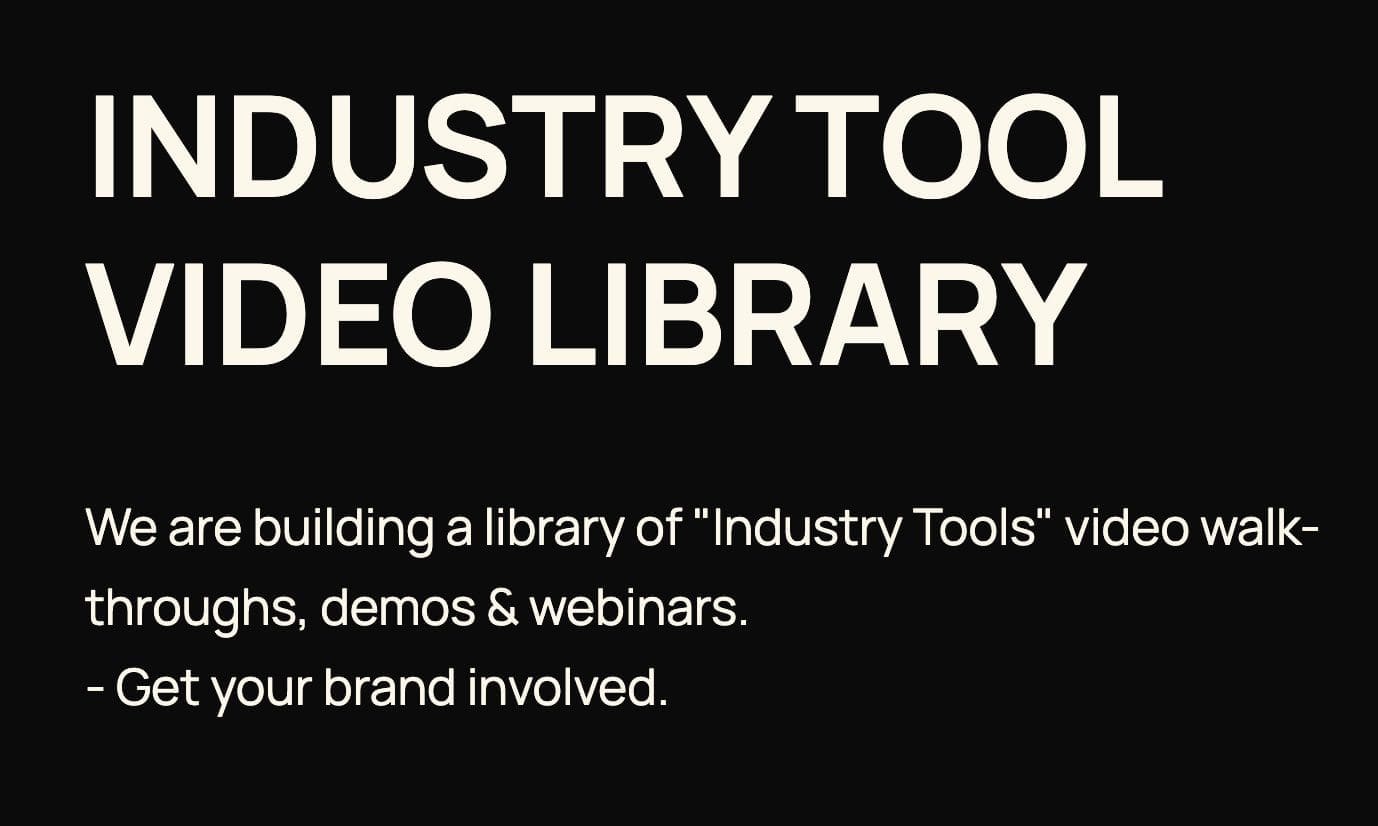AI Learning Centres:
- AI – Learn The Basics
- Get The Most From ChatGPT
- Branding in The Age of AI
- AI for Client Experience
- AI For Prospecting
- AI For Marketing
- AI For Listings & Ads
- Team Adoption of AI
- AI For PM
- AIO & Generative Search
- AI For Operations & Efficiency
- AI For Market Research & Analysis
- AI Ethics, Privacy & Compliance in Real Estate
Digital Marketing & Social Media Learning Centres:
Guides & Downloads

The Role of Consistency in Building a Trusted Online Brand
Consistency is how people learn to trust you online. When your look, words, and actions feel the same across every post and every platform, people feel safe to contact you. They know what to expect from you. This is true for listing updates, market news, and everyday community posts. With a clear system, you can build that trust quickly and keep it for years.
Why consistency creates trust
Consistency turns strangers into warm contacts. It does this by making your brand easy to recognise and easy to remember.
Familiarity helps people feel comfortable before they ever meet you
Reliability shows that you show up on time, every time
Authority grows when your advice is steady and clear
Recall improves when your colours, fonts, and voice repeat often
Platform algorithms reward steady posting and steady engagement
What consistency looks like across your brand
Think of consistency as a promise you keep in many small ways.
Visual identity stays the same across every post and video
Voice and tone feel human, calm, and helpful
Topics match your core expertise and your local area
Posting rhythm follows a simple weekly plan
Messaging repeats clear value, proof, and next steps
Service experience online matches your in person service
Compliance is respected in every claim and every image
Visual identity that people recognise
Create a simple brand kit that you repeat every time.
One primary colour and one support colour
One heading font and one body font
A logo version for light backgrounds and a logo version for dark backgrounds
A photo style that fits your market, for example bright, clean, and natural light
A watermark for property photos where suitable
Safe margins so text never touches the edge
A square template, a vertical template, and a landscape template for speed
Voice and tone that people trust
Your words should feel like a helpful neighbour who knows the market.
Use short sentences
Use plain words, no jargon
Lead with outcomes for the client
Share facts, then explain what they mean
Be warm, be positive, be honest
Invite questions at the end of every post
Content pillars that keep you focused
Choose four pillars and stick to them. This makes planning easy and keeps your feed clear.
Property marketing, new, under offer, sold
Market education, prices, supply, buyer demand, auction insights
Local community, small businesses, schools, parks, events
Behind the scenes, open home prep, vendor care, negotiation tips
A simple posting rhythm that you can keep
Aim for one main post each weekday. Weekends can be for stories and open home moments.
Monday, market stat or suburb spotlight
Tuesday, new listing or coming soon
Wednesday, buyer or seller tip
Thursday, community feature or local business
Friday, sold story or client review
Saturday and Sunday, stories from opens and auctions
Message playbook for common posts
When you repeat a structure, your work is faster and your message is clearer.
New listing
Hook, one clear benefit or standout feature
Three key features in simple words
Invite to inspect and include next step
Sold
Result in simple numbers or outcome
Short story of the campaign and the buyers
What this means for nearby owners and a call to action
Market update
One key number
What it means for buyers and sellers
Simple next step such as request a suburb report
Client review
One line summary of the client goal
Quote from the client
How you helped and invitation to chat
Appraisal invite
One local insight
Promise of value such as a pricing range and plan
Clear booking link or contact details
Build your consistency system in seven steps
Define your pillars and your audience
Write a one page style guide for visuals and voice
Build ten reusable templates in your design tool
Create a weekly content board with the rhythm above
Set two fixed publishing times each weekday
Add a quality checklist before posting
Review results every two weeks and refine
Your weekly content stack
Use this list to plan once, then schedule.
Two market education posts, one number led, one explainer
Two property marketing posts, one new, one sold or under offer
One community post that shows care for the area
Five to ten stories across the week, short moments and reminders
One short video, sixty seconds or less, teach one thing
One email wrap with links to your top three posts and your newest listing
The quality checklist before you post
Run this quick check to keep standards high.
Headline is clear in ten words or fewer
First line makes me want to read the next line
Photo or video is bright and framed well
Logo and colours use the brand kit
Call to action is one simple step
Contact details and legal items are correct
Spelling and place names are correct
Links work on mobile and desktop
Trust signals to repeat often
People feel safe when they see proof and care.
Valid licence and office contact details
Real client reviews with names where allowed
Local awards or sales milestones stated modestly
Clear service promises such as same day feedback after opens
Fast reply times stated and then delivered
Community service and local involvement
Transparent pricing conversations handled with care in private
Keep consistency across platforms
Your brand should feel the same on every channel.
Facebook and Instagram, same visuals, fit the format and use stories
LinkedIn, same voice, slightly more professional, focus on insights
Google Business Profile, fresh photos, reviews replied to, weekly post
Email, same colours and fonts, brief paragraphs, one main call to action
Website, match the brand kit, keep pages updated, proof points easy to find
Make it easy for a team to stay consistent
Even one assistant or a freelance designer needs clear rules.
Store brand kit and templates in one shared folder
Use standard file names with date, topic, and platform
Keep a content calendar visible to all
Add approval steps for any claims or numbers
Save captions in a library by pillar for fast reuse
Run a monthly brand check across all profiles
Handle mistakes without losing trust
Mistakes happen. Your response shows your true brand.
Act fast, fix the error and repost if needed
Acknowledge the mistake in simple words
Share the correct information
Thank people for their patience
Update your checklist so it does not happen again
The 30, 60, 90 day plan to lock in consistency
Day 1 to day 30
Build your brand kit and style guide
Create ten templates and five caption frameworks
Set your weekly rhythm and schedule two weeks ahead
Gather five reviews and three case studies
Clean and update all profiles
Day 31 to day 60
Post to the rhythm every weekday
Film one short video each week
Share one deeper market explainer each fortnight
Ask for a review after every sale and every appraisal meeting
Start a simple email wrap each week
Day 61 to day 90
Review results and refine your pillars
Refresh any weak templates
Add one new recurring series such as Street of the Week
Create a lead magnet such as a suburb pricing guide
Document your full workflow so it can be shared or handed over
Simple metrics to track consistency
Choose a few and track them every two weeks.
Posting frequency and on time rate
Reach and profile visits by platform
Saves and shares on education posts
Clicks from posts to your website or booking page
Direct messages and enquiries
Average reply time to comments and messages
Reviews received and replies given
Email open rate and click rate
Appraisals booked that started from online content
Prompts you can use to keep your content consistent
Copy and paste, then add your suburb and details.
Write a 120 word market update for suburb name. Use one key number, explain what it means for sellers, then invite people to request their street price guide.
Create a new listing caption for property type in suburb name. Highlight three top features and the lifestyle benefit, then invite to the first open home on date.
Turn this client review into a short story post. Keep it warm and simple. End with an invite to ask for a quiet pricing chat. Review text.
Draft a one minute video script on days on market in suburb name. Use a hook in the first line, one example, one tip, and a simple call to action.
Write a community spotlight post for business name in suburb name. Share what they do, why locals love them, and how this adds to the area value.
Common pitfalls that break trust
Avoid these and your brand will feel strong and stable.
Posting in bursts then going quiet
Mixing too many colours and fonts
Changing your voice to chase trends
Sharing complex graphs without plain language
Making big claims without proof
Forgetting to reply to comments and messages
Using stock photos that do not match your area
Turning consistency into daily habits
Small habits create big trust over time.
Block thirty minutes each weekday for brand tasks
Keep a running list of ideas sorted by pillar
Reuse winning posts in a fresh way after eight weeks
Film short videos in batches
Save time with templates, checklists, and scheduling tools
End each day by replying to every message with care
Consistency is not about being perfect. It is about being steady, clear, and honest. When people see the same quality from you every week, they feel safe to reach out. Your colours match, your voice is kind, your facts are clear, and your service is reliable. That is how a trusted online brand is built. Keep the promise, one clear post at a time.






